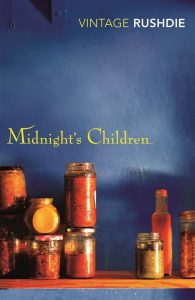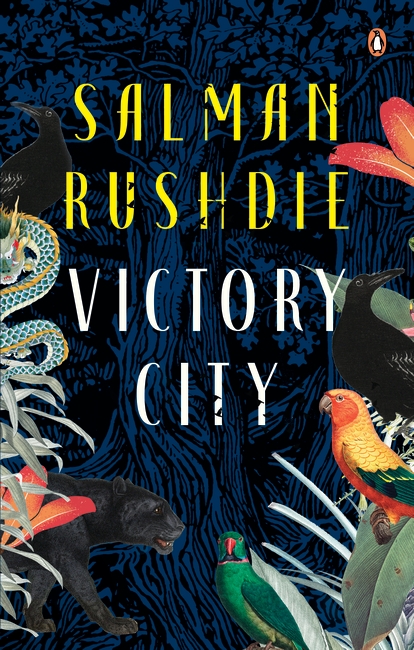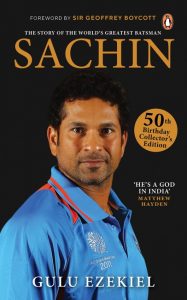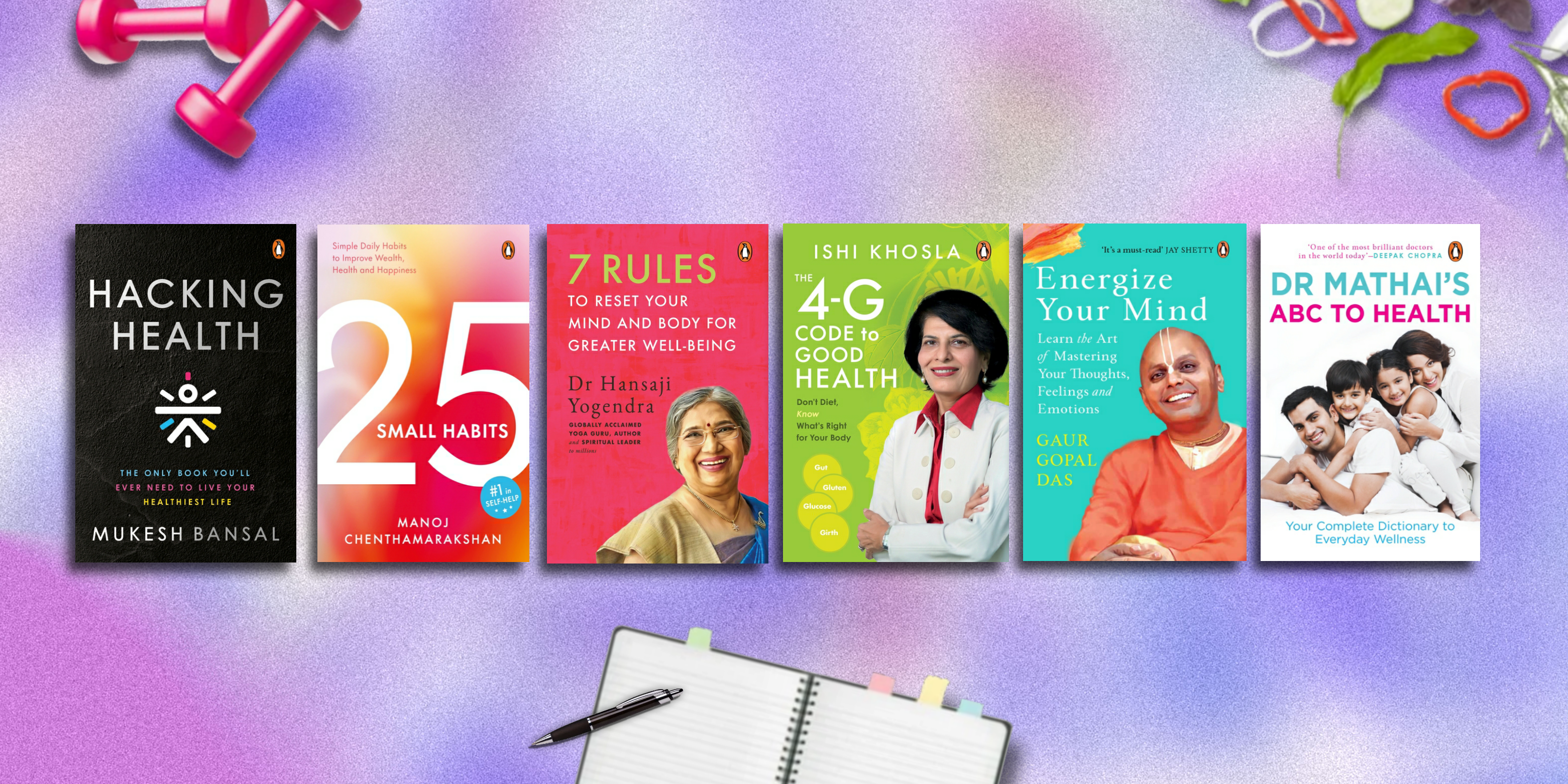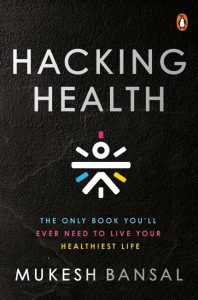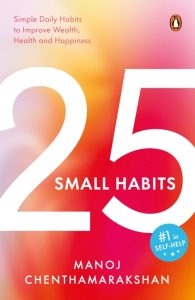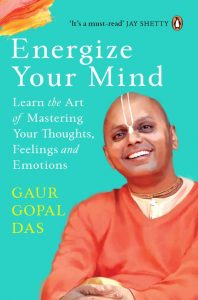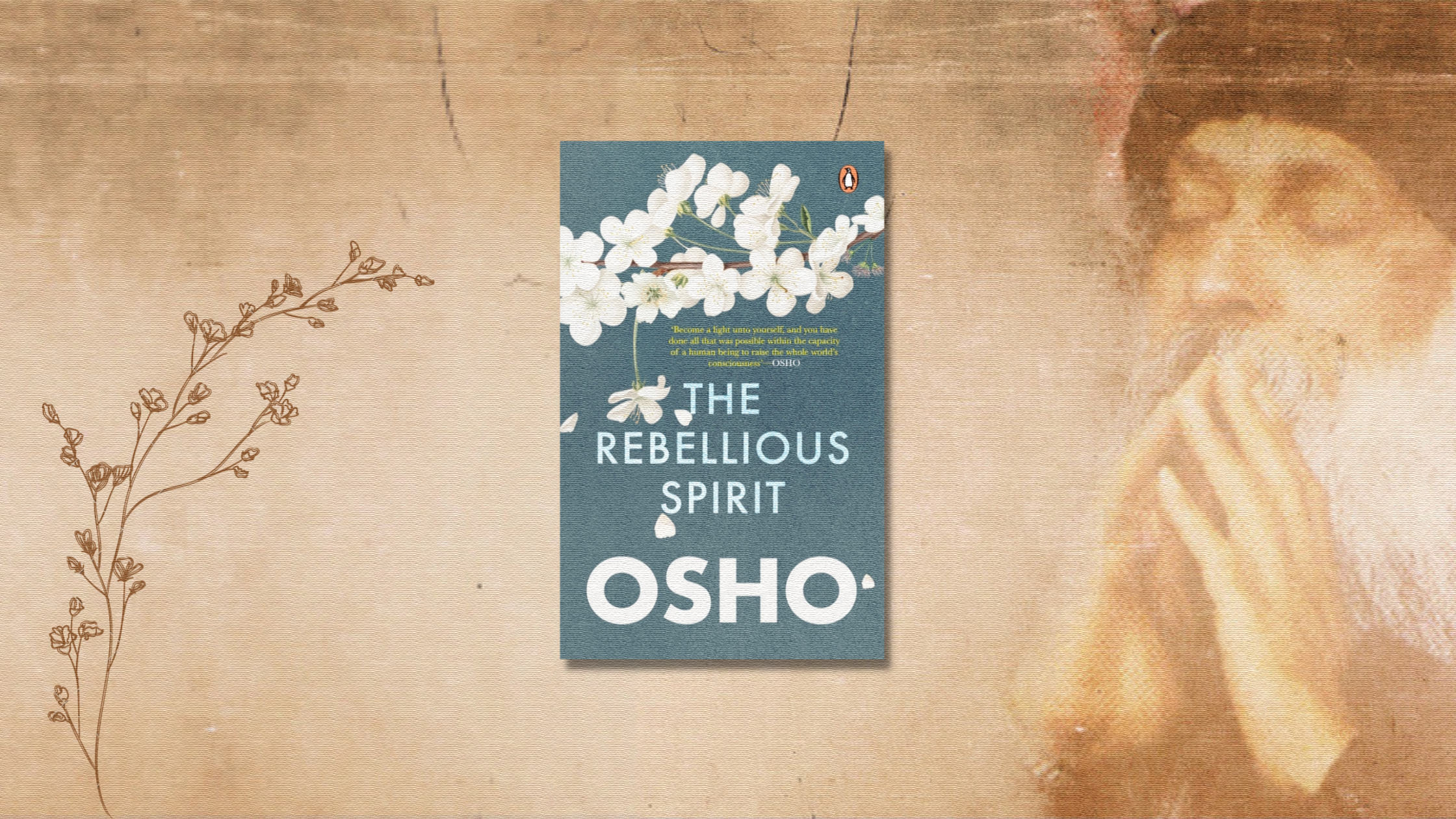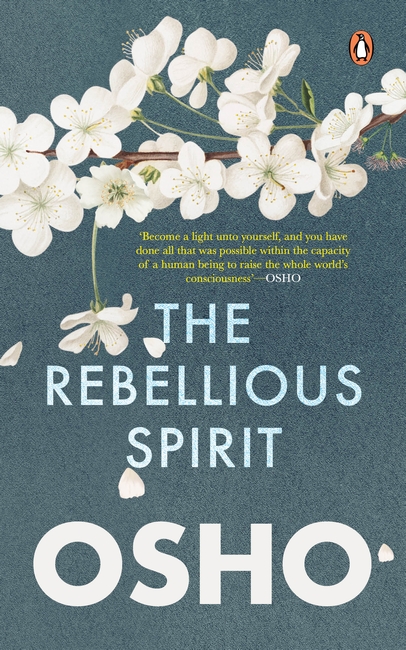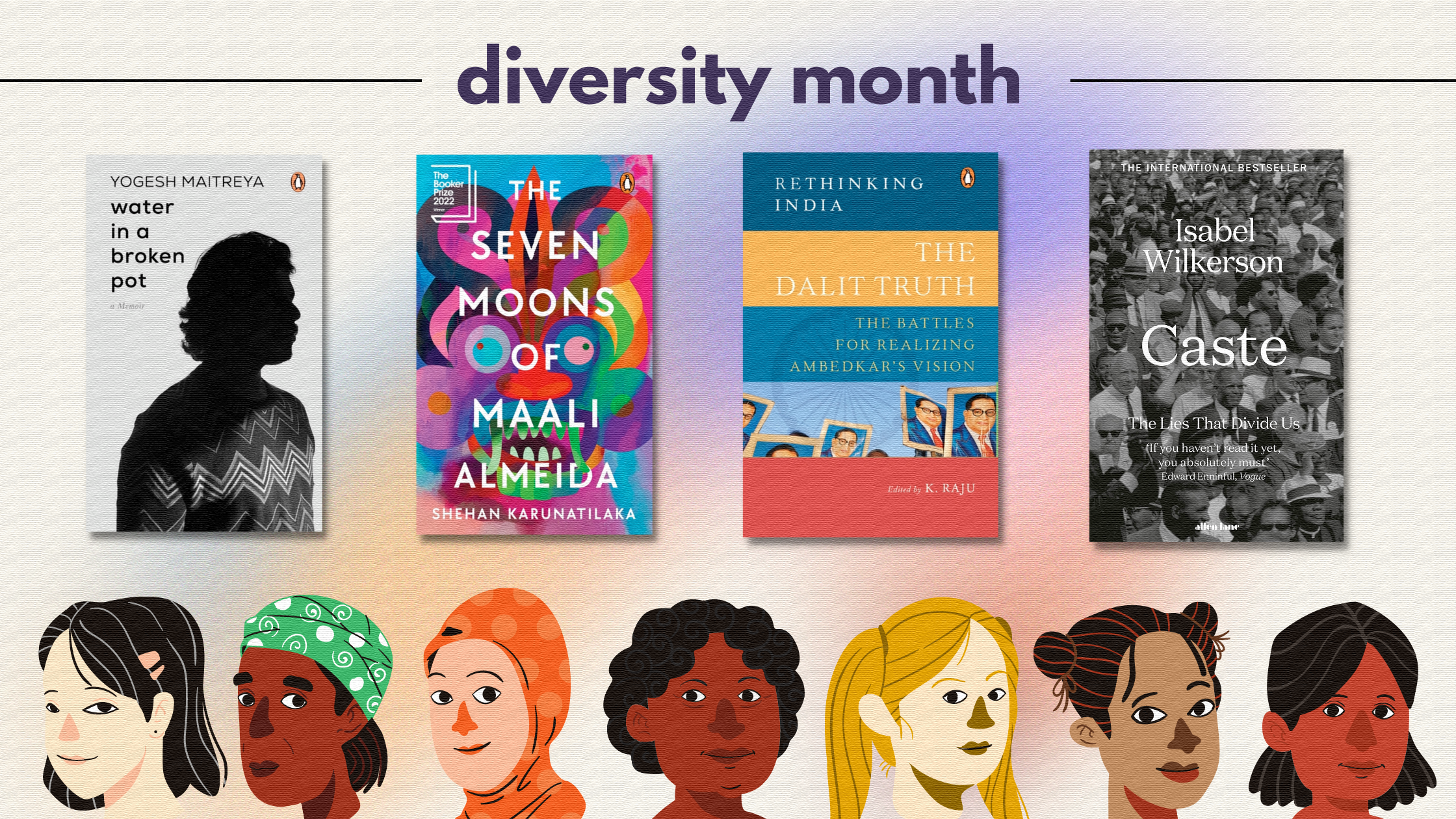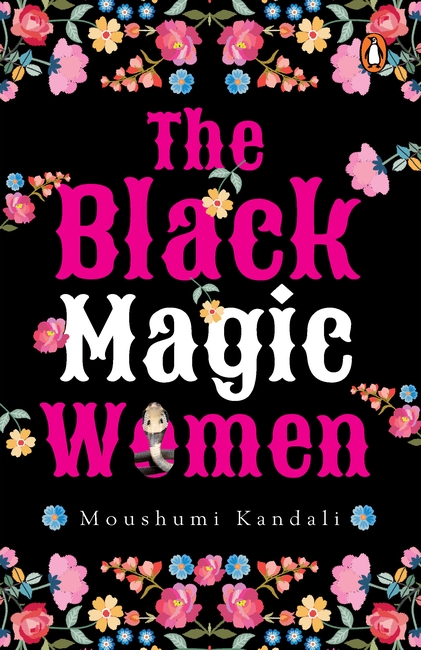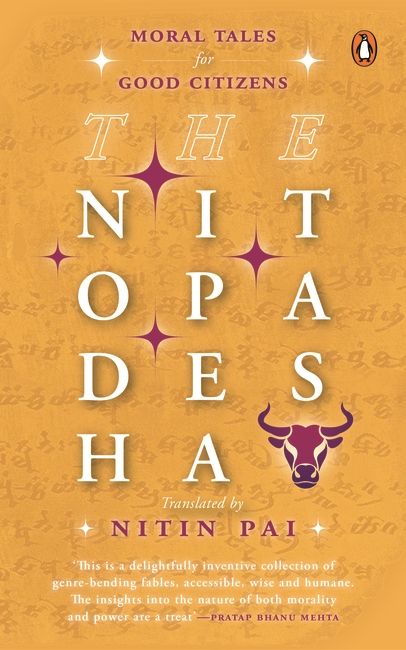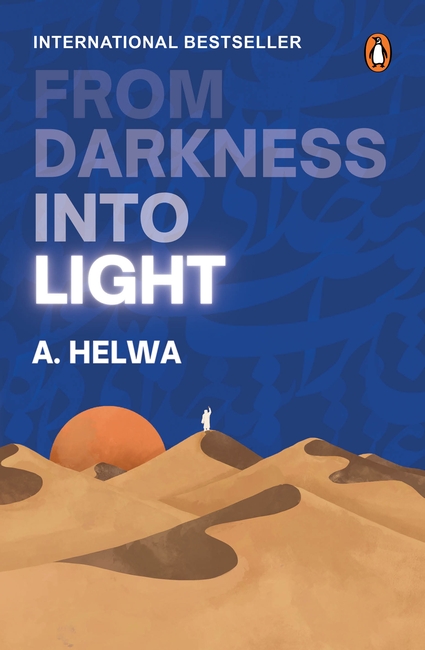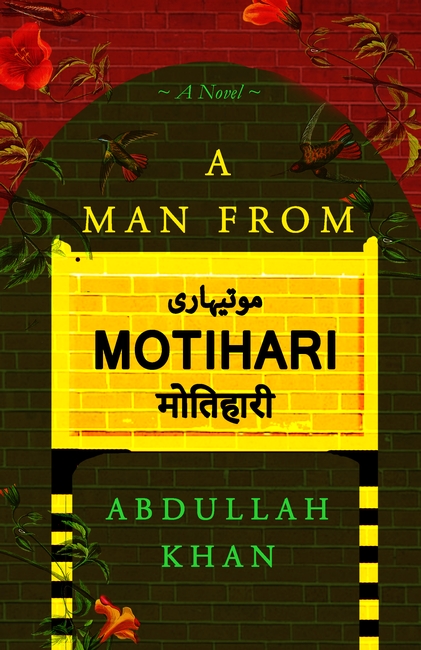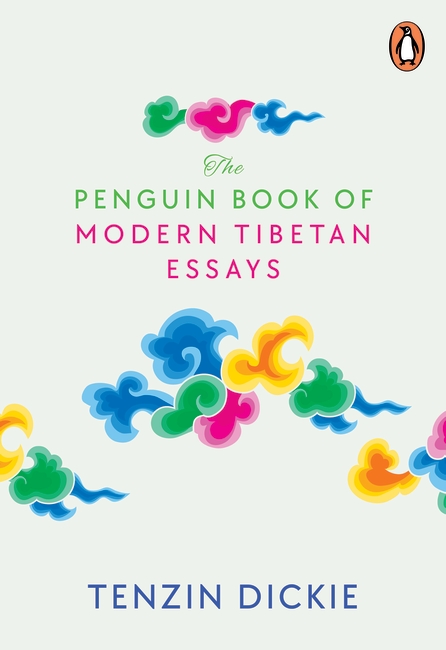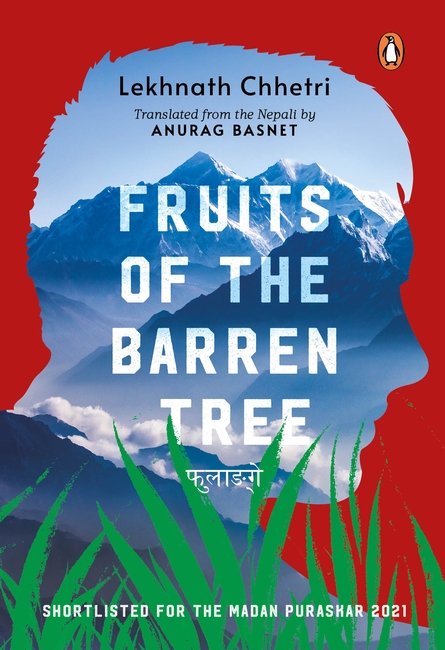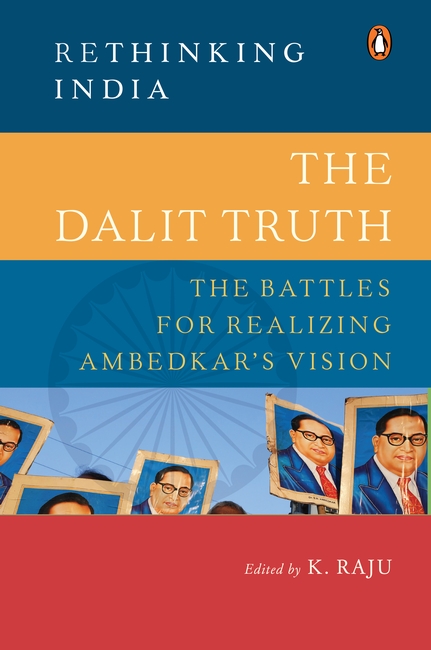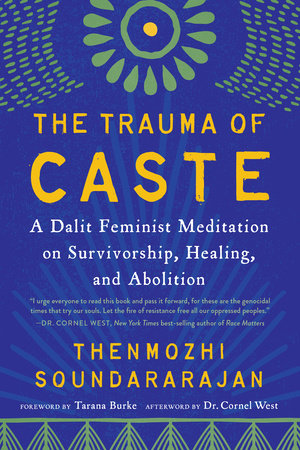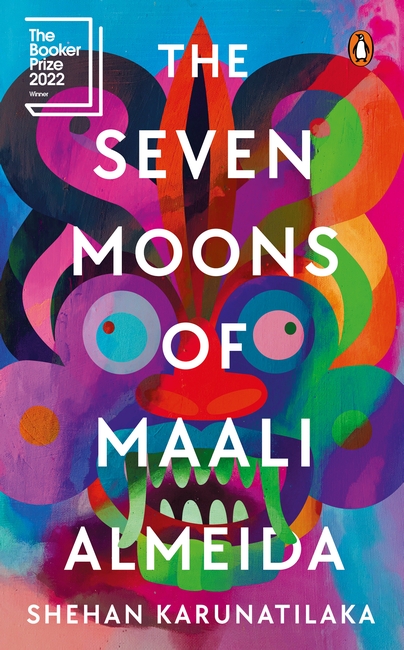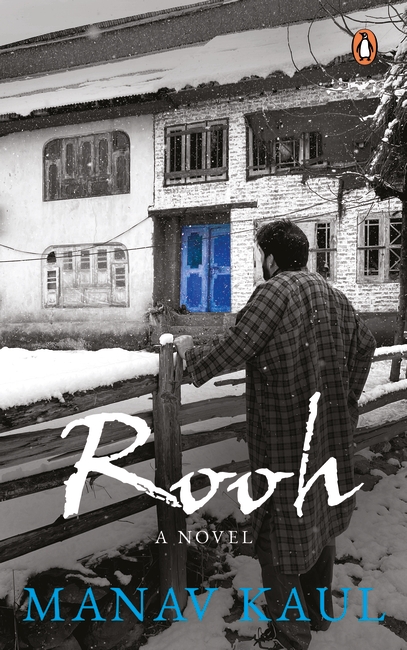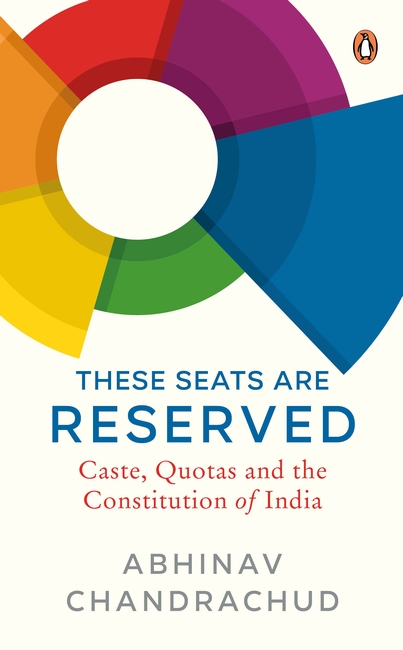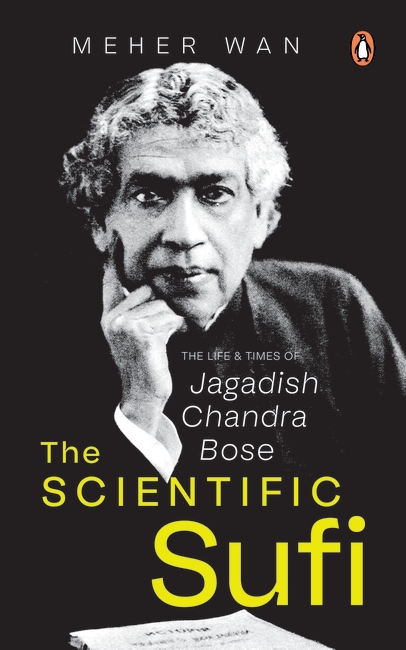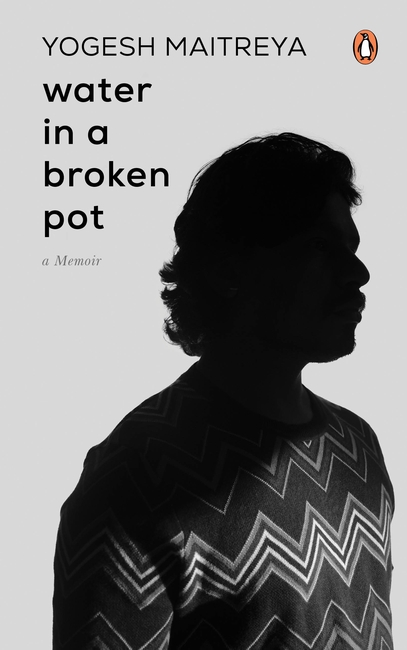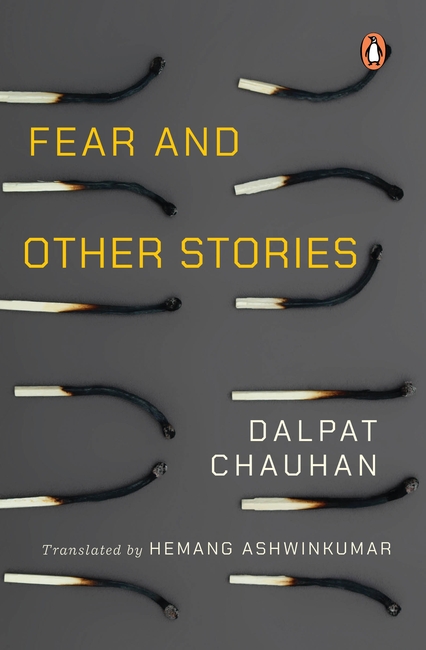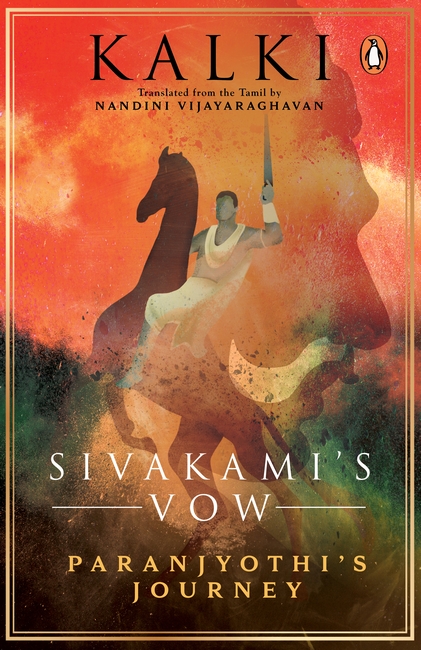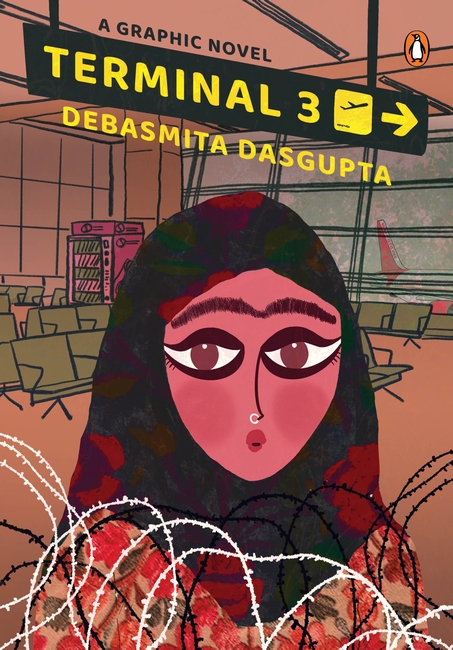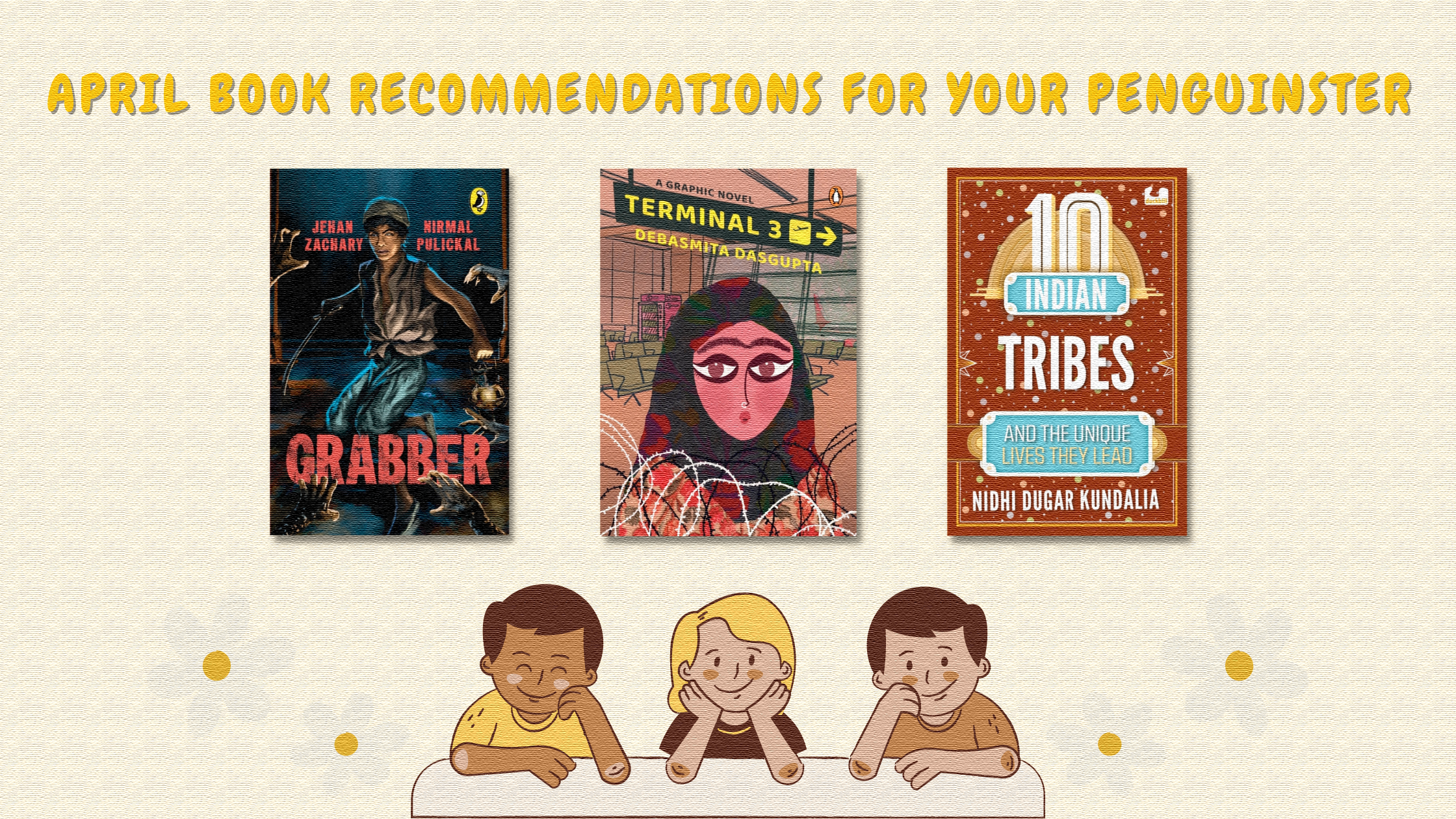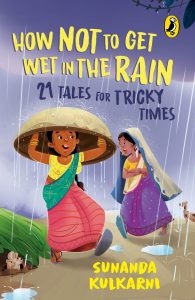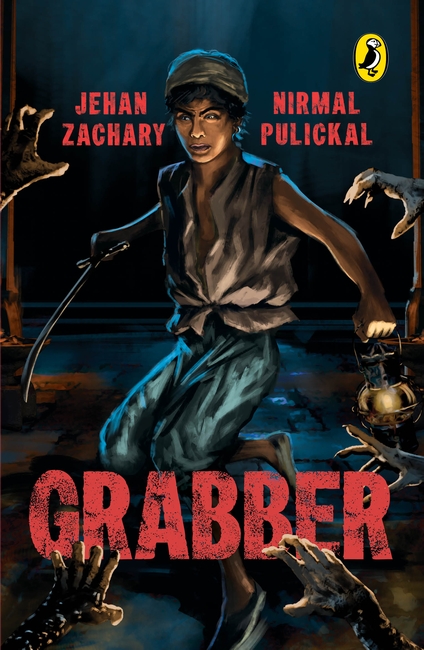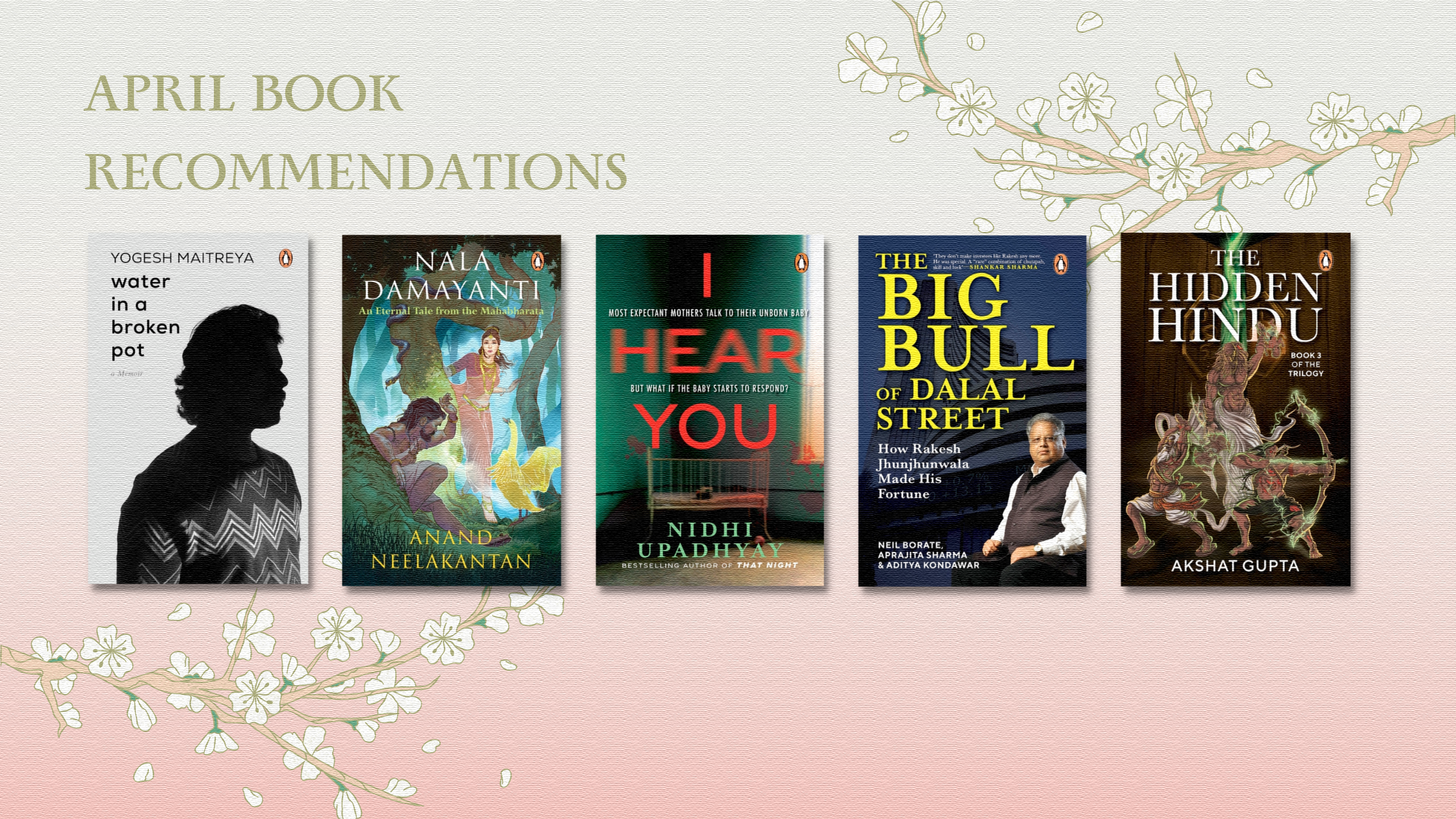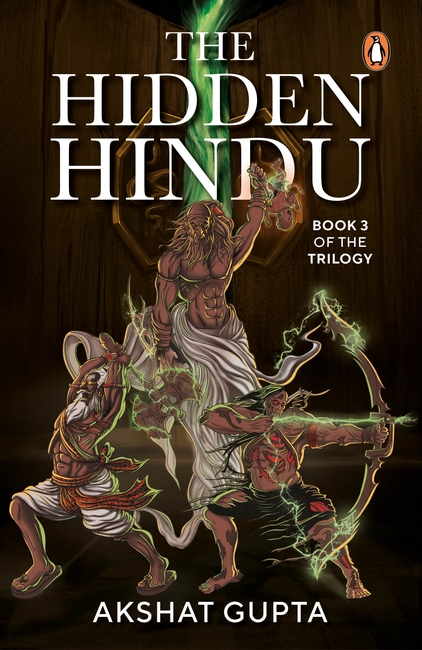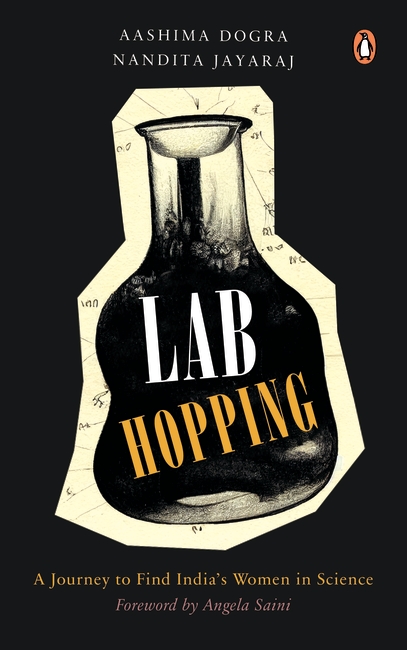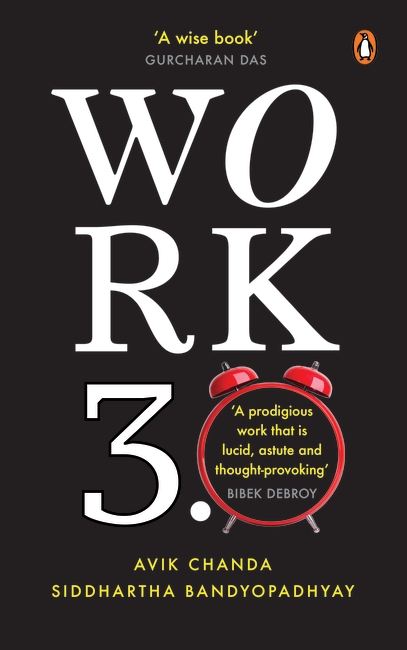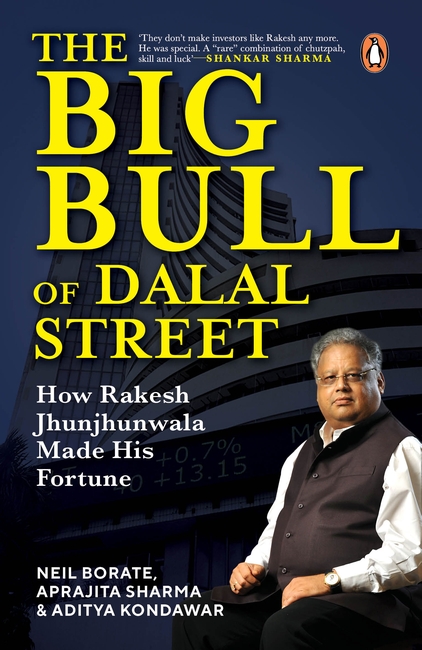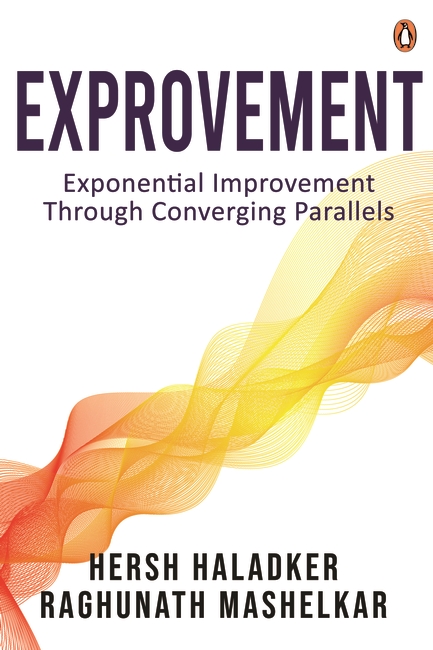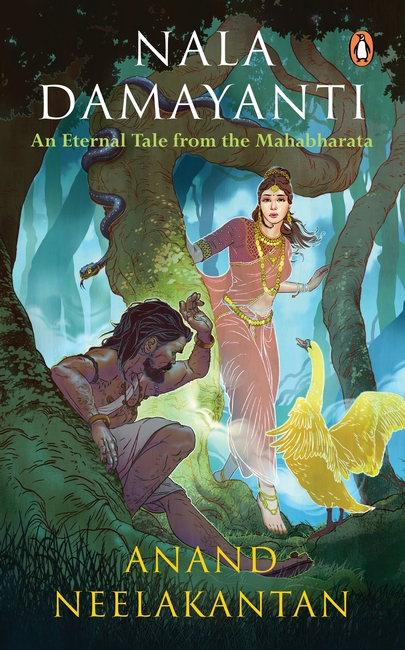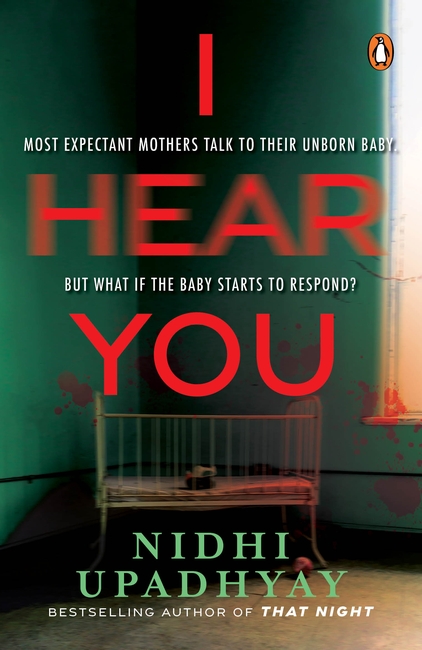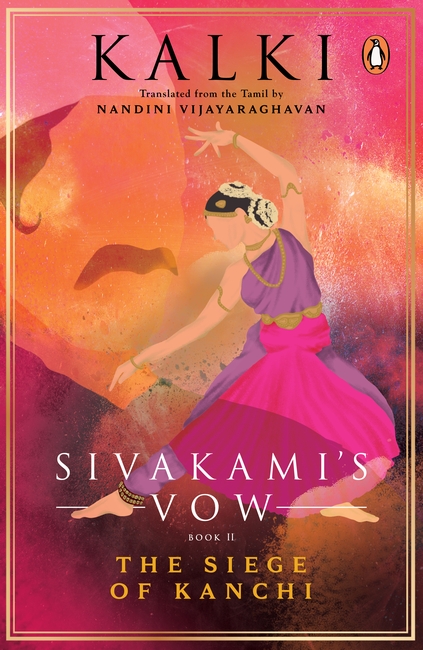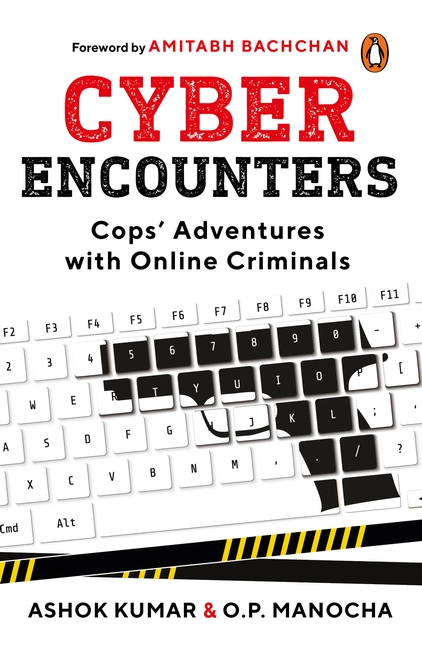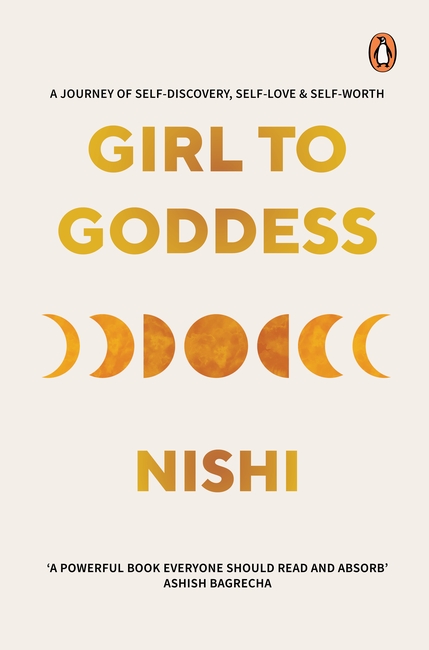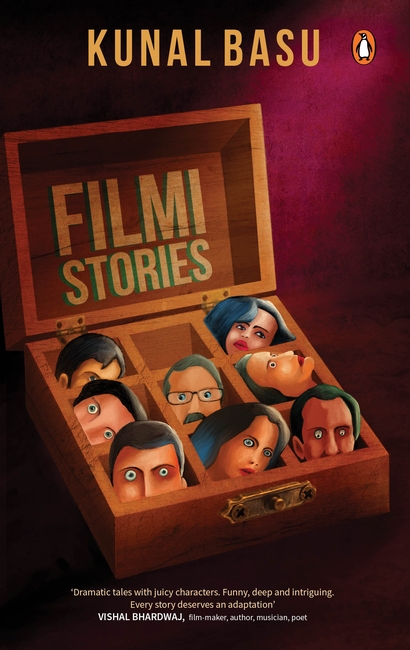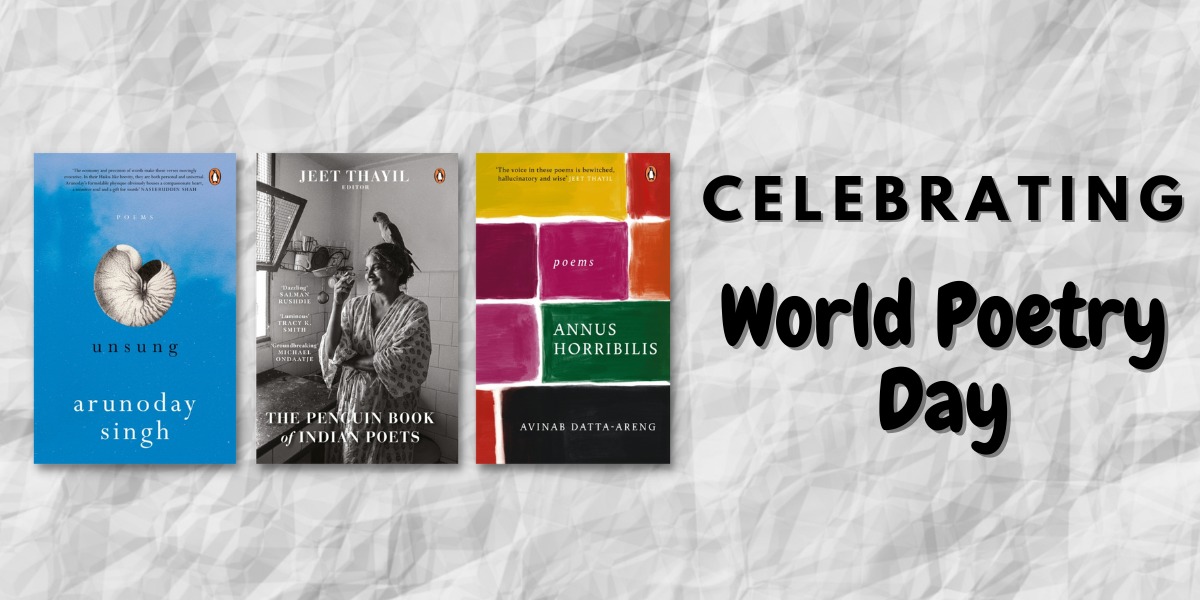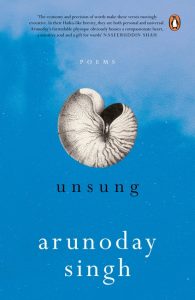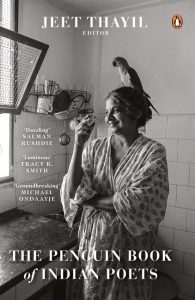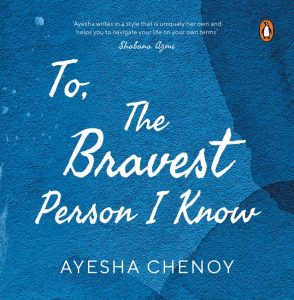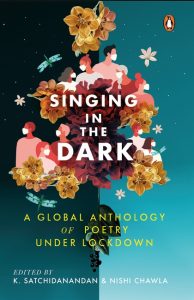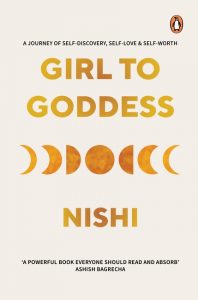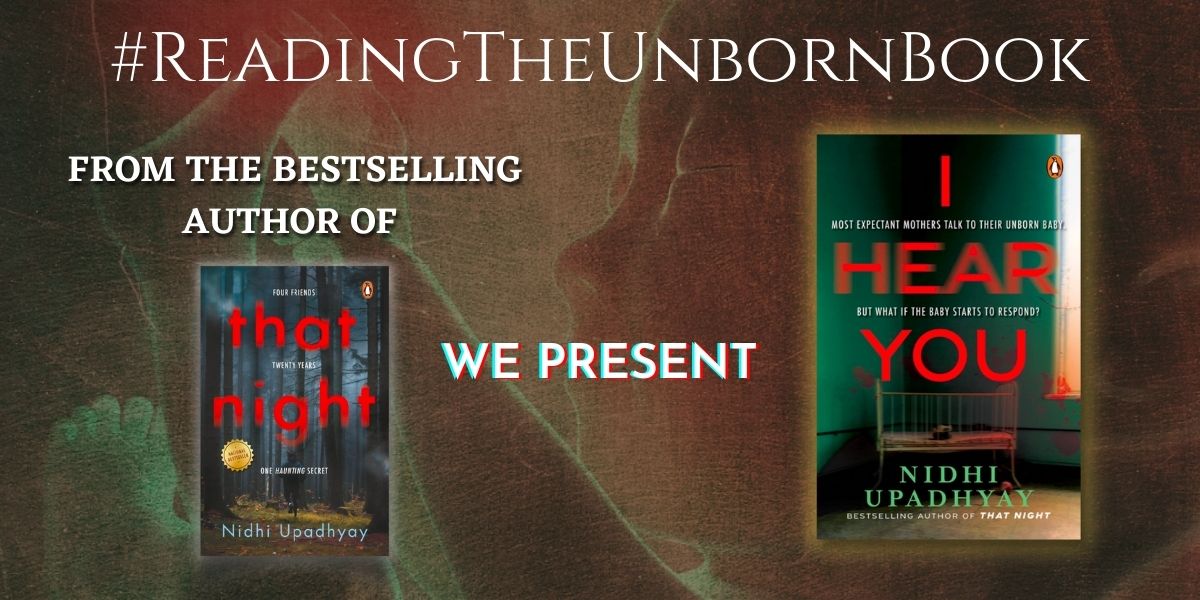In the kitchen, he took leftover chicken soup from the fridge, dumped it in a pot on the slow burner and walked up to the bedroom.
Mahika had just come out of the shower, yet she was still wearing one of her old, faded cotton nightgowns. Today she’d chosen the one Shivam hated the most. The batik prints on it looked like ink splotches. The curly ends of her hair were still shedding a few droplets. Before the tiny puddle on the floor could trigger Shivam’s irritation, the tilt of Mahika’s head shifted his mood. She was admiring his garden downstairs, which was a riot of rainbow colours. He was particularly proud of his genetically modified blue petunias. Shivam walked to the window, and the waft of Mahika’s rose-scented body soap generated a surge of desire in him, and the need to feel her skin against Shivam’s blurred his fear of germs considerably.
Shivam had expected Mahika’s body to melt in his arms, but she gently pushed him away. A knot twisted in his stomach. Their relationship had changed a lot in the last five years, from Mahika waiting at the doorsteps for Shivam’s return to welcoming him from the aroma-filled kitchen, to ignoring his arrival. Shivam had seen the gap widening between them. But pushing him away was a new low in their relationship. Was it the pregnancy hormones, or did she know something she wasn’t supposed to?
Before his doubt could grow more, Mahika began to retch. Shivam scooped Mahika’s damp towel, neatly folded the unevenly bundled-up duvet and arranged the pillows on the bed three times. It calmed his mind. He walked down to the kitchen to serve the leftover chicken soup, as this was the only time when Mahika would agree to eat. Mondays were supposed to be Indian takeaway dinners, a ritual Mahika had started by going to the temple every Monday evening. But the arrival of that anonymous note had meddled with his routine trip to Little India. Thinking of the note brought his simmering worry to a boil, unlike the soup, which was still too cold to be edible. Shivam gave the soup a long stir as he pulled the note from his pocket and read it again. The longhand was as unreadable as a doctor’s prescription, but the childish grammatical errors made him think this was the work of a kindergartener. However, the tiny circle on every ‘I’ reminded him of Mahika’s father. Prof. Mishra, Mahika’s father, used to dot his i’s in a similar fashion.
The soup boiled over and spilt around the gas stove, bringing his attention back to the task at hand. He poured the rest of the soup into a bowl, toasted the bread and walked up the stairs, once again remembering the hatred with which Mahika had pushed him away. Mahika had started acting in a very strange way ever since her last visit to the clinic.
What was she hiding?
CHAPTER THREE
Week Nine
Your baby is now about three-fourth of an inch long— about the size of a grape or an olive. It’s an exciting time for your baby: major organs continue developing; arms are growing; elbows can bend. Tiny toes develop, and the ears and eyelids that began emerging a week ago continue to form. Your baby is becoming more active, although it’s too soon for you to feel the motion. It may be possible for the heartbeat to be detected on a handheld Doppler ultrasound.
Thirty-one weeks to go!
***
Shivam Rathod
March 2, 2003
Goodman Road, Singapore
Shivam had destroyed the anonymous notes, but a week later, they still ran in his mind like a hamster endlessly spinning a wheel. He’d woken up to his alarm clock, but before the desire to sleep more could take over, the silence in the bedroom sent a jolt of panic through him.
Mahika wasn’t there.
He rushed to the bathroom and found the door ajar. Before the tightening in his chest could grow, the microwave’s beep made him sigh with relief. Mahika was in the kitchen. Cooking. She had nowhere to go.
Shivam mentally kicked himself for letting his fear take over; it was becoming a fixation. He made the bed, arranging the pillows. Generally, it calmed him— arranging the pillows three times—but not today. He inhaled and exhaled the waft of roasted semolina. The thought of Mahika prepping for upma, his favourite breakfast, should’ve calmed his nerves. But it did the opposite. The mess in the kitchen, the tiny granules of semolina sparkling on the black granite kitchen counter bothered him. The cellphone on his nightstand vibrated, and his anxiety shifted as the green screen lit up.
Coast clr. Appt at 3 pm tdy. Skp ur lnch visit.
Shivam was still staring at the text when he heard something in the kitchen fall. Mahika had dropped a jar. Nothing unusual. But today his agitation swelled to an unprecedented magnitude. With another ping on the phone, the second problem multiplied as well.
I dn’t wnt ny scare ths time. Keep her on a shrt leash.
Shivam’s anxiety spread like fire in his chest and throat. He walked to the bathroom, locked the door behind him and calmed his ragged breathing. But the finger stain on the vanity cabinet mirror added to his agitation. He ignored the stain, opening the cabinet to get his medicine, but the disturbed order of the medicine bottles acted like a match to gunpowder. He’d rearranged them from tallest to shortest last night. But Mahika had disturbed their arrangement when taking her medicine. Shivam popped a pill and shut the cabinet before his anger could spill. The chaos in the medicine cabinet disappeared. But he saw the spare hand towels unevenly folded. Mahika had yet again pulled the lowest towel from the stack.
He could handle this.
Shivam splashed cold water on his face and waited for the medicine to work, but the ugly sight of Mahika’s comb filled with loose hairs was too much to ignore. He pulled out a set of disposable gloves from the cabinet beneath the sink and cleaned the comb. But the hairs were still there. A strand on the bathroom counter, two on the floor and many resting on the drain in the shower. He had to get rid of those before he choked. Shivam frantically wiped the vanity cabinet’s shelves, and soon the need to vigorously scrub every nook and corner of the bathroom took over.
Over the years, Shivam had learnt to tame his meltdowns. But today he was fully under their spell. The mantra you-will-scare-Mahika-and-the-baby didn’t work either.
To his surprise, Mahika stayed away from him and the room while Shivam’s compulsive need to clean shifted from the bathroom to the bedroom.
Shivam came downstairs only when his medicine had complete control over his nerves, leaving the bathroom and the bedroom sparkling clean in his wake. He had expected Mahika to be in the shed, which would let him escape, but she was in the kitchen, packing his lunch. Before he could find the right words to apologize, Mahika rushed to the washroom with her left hand covering her mouth. A feeling of relief immediately replaced his remorse. Today, his meltdown had killed two birds with one stone: it had released his anxiety and also helped him dodge a conversation about the door’s new lock.
Shivam lifted the lid, anticipating upma but was startled to see halwa instead. He pushed away the casserole and lathered two slices of bread with butter, put them in a LocknLock, and rushed out of the house before Mahika could return from the washroom and ask for the lock’s password. He could come up with an excuse for the lock later, but first, he had to find out what was going on with Mahika. The alarm in his mind had started ringing again.
Mahika Rathod
March 2, 2003
Goodman Road, Singapore
Mahika woke up with debilitating nausea, rushed to the washroom and emptied the contents of her stomach into the toilet, but her stomach still felt as heavy as a boulder. Shivam’s betrayal hid in the pit of her stomach, keeping her unborn mutant company. Yes, that’s what it was—a mutant that had jumped the growth chart, kicking her eight weeks too early.
And thanks to the evil concoction of her raging emotions and hormones, she’d done nothing about the lock. She didn’t have the energy to worry about the lock, the baby trapped in her womb or the writer of the note calling her a procrastinator. She could barely manage to reach the washroom to throw up. Mahika had been diagnosed with hyperemesis gravidarum, a medical term for severe nausea and vomiting, during her first pregnancy, and it had come back with a vengeance in every pregnancy since, incapacitating her. But this time the anti-vomiting medicine her obstetrician had prescribed wasn’t helping, and the hormones injected into her, to stabilize her pregnancy, were making it worse.
Mahika had been about to nibble on a cracker when the craving to eat halwa—the one her mother cooked— gripped her hard. She pushed away the image of roasted semolina swelled in ghee, but the craving multiplied with every breath. Mahika had not felt like eating anything for weeks. She caved, going down to the kitchen to roast the semolina, waiting for its fragrance to kill her appetite. However, the fragrance teased her hunger instead. She was about to crush the cardamom in when the pestle slipped from her hand and dropped to the floor, making a loud thudding noise. The baby in her womb kicked almost instantly as if also startled by the thud. But before Mahika could discount it as a coincidence, Shivam had started throwing things upstairs, announcing his meltdown.
Welcome back to your life, she thought.
Mahika walked to the kitchen sink and ran the faucet, trying to drown out the little voices in her head, at least, if not the non-stop thudding coming from the bedroom. But her stomach was still a rolling boil—growing, with the increasing noise upstairs. She blocked her ears and waited for the moment to pass, but something within her couldn’t calm down.
The baby.
Mahika placed her hands on her belly and was startled by the powerful kicks. The life within her was throwing his legs and hands in panic, responding to the sounds coming from upstairs.
It had taken a week for Mahika to come to terms with her unborn baby kicking eight weeks early. And now the baby was startled by these sounds. They were loud and annoying, but were they loud enough to penetrate her womb?
‘Calm down, kiddo.’ But her touch and her command held no weight. She picked up the pregnancy guidebook, flipping to the ninth week’s milestones. Nothing. Mahika then jumped to the sixteenth week’s milestones and then to the seventeenth week. Nothing.
She read the growth benchmark of an eighteen- week-old foetus. The structures inside the baby’s ear develop around week eighteen. Your baby can hear your stomach gurgle and air whoosh in and out of your lungs. Not until weeks twenty-seven to thirty would your baby start reacting to voices and noises filtering into the womb.
But she was in her ninth week. How could the life within her register all those thuds upstairs?
Another loud thud came from upstairs, followed by another kick in her womb. Mahika’s heart ached in an unfamiliar way. Instead of playing Mozart for his unborn, Shivam was hurling insults, screaming and shouting like an animal.
The very thought of her unborn tormented by this pandemonium stirred in her a volcanic mix of anger, sadness, betrayal—and an ounce of courage, too.
She had to end this all. If not for herself, for him.
Mahika let the wave of courage subside, as she always did. She could barely stand straight without throwing up. How would she plan her escape? She pulled out the tattered spiral notebook from her recipe books. It still smelt of her mother. Mahika folded the notebook into a hug and stayed there. The sounds coming from upstairs became bearable, but only for her. The life within her was still kicking with the same intensity.
‘You and me, we have no place to go. This is all we have. The sooner you accept that, the better it will be for you,’ she said.
Was it her imagination or did the kicking stop? She waited for another thud to startle the baby, but the house had also fallen silent, suggesting the end of Shivam’s meltdown. As she crushed the cardamom, Mahika rehearsed her words to casually inquire about the new lock on the door. However, nothing today was going as planned. The overwhelming fragrance of freshly crushed cardamom—always bringing with it memories—triggered her nausea. This let Shivam escape. The charade of normality and the ready lunch bag, neither had inspired Shivam to share the password. He left for work, locking the door behind him.
An image of a canary bird flashed in her mind. A bright-yellow bird singing the sweetest melody, locked in a cage.
Rudra would be his next canary bird. The name ‘Rudra’, suggested in the anonymous note, had appeared on her lips from nowhere. ‘Rudra,’ she said, fighting tears. Mahika summoned him again and patted her belly. But there was no movement in her womb. She’d imagined it all. He couldn’t hear. But she didn’t care. The thought of him being there was comforting enough.
Shivam had warned her not to get attached to the baby until she had crossed the twelve-week milestone in her pregnancy, but how could she ignore the little flutter in her womb? In Shivam’s eyes, it might not be a baby, but in her heart, the baby became real from the moment she conceived. And like every mother-to-be, Mahika had hoped and dreamt for her unborn in every pregnancy. Her last three pregnancies terminated too soon, and the stream of blood between her legs left behind grief, guilt and emptiness. With every miscarriage, Mahika lost trust in her body, in herself and her future. However, in this pregnancy, Rudra’s powerful kicks had rekindled her hope.
Mahika patted once again, and this time he kicked back as if reciprocating the love Mahika had begun feeling for him.
‘Hey, little one. Let us call you Rudra for now,’ she said and paused to weigh the word ‘now’, calculating how long this happiness might last. Twelve weeks. Or sixteen? That’s how far she’d gotten with her previous pregnancies.
But the baby’s powerful kick again pushed away her negativity, and Mahika blissfully indulged herself in this one-sided conversation.
‘Hello again, little one. I’m your mommy, and my name is Mahika. But I guess that’s not the kind of introduction we should have. You will first know me by my fragrance, my voice and then by my name. But let’s cross the bridge when it comes. For now, be assured these meltdowns and these loud noises aren’t a regular feature. Don’t worry, these incidents happen when your father is anxious. There must be something very important going on at work. Your father is a genius, Rudra. However, nature has balanced his perfections by giving him a temper. Ironically enough, his fetish for perfection is what makes him imperfect. Because all his mood swings and obsessions circle back to his desire for perfection.’ Mahika spooned a bite of halwa. She thoroughly enjoyed her son’s company while she ate breakfast.
‘I was also scared when it happened the first time. We were in New Jersey back then. It was a month shy of our first wedding anniversary. Your father had an important work meeting that morning. I can’t remember what it was, but it was important. He’d requested that I iron his white button-down shirt again. I couldn’t spot the invisible wrinkles, but to calm his nerves I ironed it again. But in ironing it again, I’d left a pale-yellow iron stain. A moment later, an ear-splitting scream startled me. The way it probably startled you today. Thankfully, you’re spared from seeing the mayhem upstairs. But that day, I saw it for the first time: the wreckage his anger had left behind. All his colour-coordinated shirts, his neatly folded T-shirts and boxers—which he fussed over every day—were on the floor. Amid this chaos, he radiated a rage I’d never experienced before. I approached him to shake him out of his rage and to offer some help cleaning the mess on the floor, but then he twisted my arm and spat an insult at me. The food you eat comes from the money I earn. And that requires going to work in a clean shirt. Can you make sure of that at least?’
Mahika swallowed the lump in her throat. The lump that had stayed there since Shivam’s first meltdown. Today, for the first time, she felt this lump easing. As if telling this story was the mechanism to dissolve it. She’d been holding in her pain for so long that her words had started flowing like a broken dam.
‘Rudra, that day, soon after his meltdown, I called my father, but the line went dead right when I needed him the most. I waited for an entire morning for the dial tone to return while I rehearsed my lines. I didn’t know where to start, as I’d never told my father about Shivam’s obsession with cleanliness and the number of household chores I had to do to keep him happy. I’d tried talking to my father several times, but he was living all alone in India and giving him another thing to worry about seemed too selfish. But that day, I couldn’t dismiss Shivam’s meltdown, because the bruise on my wrist was a red flag of physical and mental abuse. And, for the first time, I wasn’t blaming my carelessness for his outburst. Nothing I could’ve done would’ve warranted Shivam’s crossing that line. But he had crossed that line, Rudra. And I had accepted it. I should’ve walked out of the house that very day, but instead, I waited for the phone to work. I wrote an email to my father, but then I deleted it. The warmth of my father’s voice would’ve helped me gather the courage I needed to walk out of my marriage or confront Shivam, but the dead phone line left me lonely and shattered. By evening, I’d packed my bag, determined to go back to my father. But the white lilies in Shivam’s hands and his remorse-filled face melted my heart. Dinner in a nice restaurant, a list of universities to apply to a course in architecture and a promise to never lose his temper again were all it took for me to forgive his first meltdown. Rudra, the idiot I am, it took me two meltdowns to deduce the pattern. Shivam’s outburst, his stinging comments and the faulty phone line. A gift and a dinner at a fine dining restaurant. These were Shivam’s means to absolve himself from his abusive meltdowns. But by then, my father had succumbed to a heart attack, and I had nowhere to go. My grandmother, aunts and uncles would never accept my decision to walk out of a marriage, as to them, my failed marriage would mean social failure and a burden on them. And seeking support from Kirti, my best friend from college, wasn’t possible. She was living in a joint family, fighting her own battles. I had nowhere to go, and I learnt to swallow every insult, fooling myself that this was his last abuse.’
Mahika suddenly had to rush to throw up the halwa that she’d devoured. She held her head in her hands, reliving Shivam’s every meltdown and the scars they’d left behind.
‘But you’re not an orphan, Rudra. And I’ll do whatever it takes to shield you from his anger.’ Mahika stood up from the bathroom floor. Before her courage could fizzle out, she rushed to the emergency cabinet mounted in the entry hallway. The torchlight, the camping bag, the Swiss army knife and the emergency bars were all neatly stacked on the shelves. The red fireproof bag holding important documents was there too. But her passport wasn’t in it. And the traveller’s cheque her father had given her five years ago to facilitate her first international travel from India to New Jersey was also missing. Shivam had never removed the passports from the red bag except when they were travelling, and the bag was always somewhere accessible in the house. In case of a fire or any other emergency, he’d explained to Mahika. The idea of storing all the important documents in a fireproof bag had felt extreme—until now.
Where was her passport?
The image of the canary bird again flashed in her mind. Shivam had not only caged her, but he had also clipped her wings.
Mahika spent the next hour searching the house for her passport. She wanted to rummage through every drawer and rearrange things later. But placing Shivam’s things back in the same meticulous order he preferred was a Herculean task that Mahika had yet to master. She thought of that second note, telling her not to alert Shivam. So, she searched one stack at a time, which took excruciatingly long.
Thankfully, Mahika had an entire day at her disposal, or so she’d assumed. She heard Shivam’s approaching footsteps, ceased her search and ducked under the duvet just in time. Shivam came in and opened the same closet door Mahika had just searched.
Had Shivam been watching her? A shiver went down her spine.
Rudra
March 2, 2003
Goodman Road, Singapore
I wasn’t sure what left me more perplexed—my father’s screaming or my mother’s resignation.
‘You and me, we have no place to go. This is all we have. The sooner you accept this, the better it will be for you,’ my mother said, killing the tiny tendrils of hope sprouting in my heart.
So, this is how she lives. And you’re soon going to end up with her. I think you’re better here. What do you say?
I was wishing for an exit from this exile, and the exile that would soon follow when my mother christened me. I had a name now—Rudra. A name that marked the beginning of my existence in her world. A name that broke the dam of her silence and brought along stories of pain and loneliness. But instead of sympathizing with her, I wanted to shake her, to coax her to end all this.
I didn’t yet know that nothing can throw you on the path of disaster more than love.
‘I’m looking for my passport in case we need it. I have no one in this country who would come to our rescue. Not that going back to India would be any better. We’ll have no one to support us. At least we can hide from Shivam and his team, but only if I can keep you in my womb for that long.’
‘Only if I can keep you in my womb.’ And with her words, my hope disappeared like the glow of a firefly.
You might die before being born.
The voice in my head delivered this like a joke.
My soon-to-be-mother, unaware of the fear she’d instilled in me, was moving things, picking them up and putting them down with a thud. I couldn’t see her. I couldn’t help her, but I knew how it felt: locked in darkness. She spent hours pacing, and I stirred within her. Helpless. Her desire to break free triggered a storm within me.
You might not live, but she can.
The need to help her tightened its grip on me. There was a word to describe how it felt, but I couldn’t recall it—not until my mother’s words came back to me. ‘Your father gets driven by his obsessions.’ Yes, she’d used the word ‘obsession’ to justify my father’s actions this morning.
So, you have taken after your father.
According to the letter my mother had received, my genius father had designed me hoping for a perfect baby. But this untenable feeling running riot within me wasn’t a sign of perfection.
Didn’t she say that nothing could ever miss his sharp eyes?
But he’d missed the compulsiveness that silently sneaked through his DNA.
What else did he miss?
Mahika Rathod
March 2, 2003
Goodman Road, Singapore
‘Mahika, we have an appointment with your doc.’ Shivam gently prodded her shoulder. The knot in her
chest opened a bit. He was there to take her to the clinic. That explained his meltdown. He was nervous about the baby.
Mahika got ready and went downstairs. Shivam was waiting at the main door, his back hiding the new lock.
‘You go and sit in the car. I’ll lock up,’ Shivam said.
Mahika walked to the car while he hastily punched in the passcode. She was tempted to turn back and ask about the lock, but then his body language suggested she shouldn’t.
Maybe she could run away from the clinic. But where would she go?
She watched Shivam turn the doorknob once. Twice. And before he could check the third time, Mahika looked away.
Was it always that easy to predict his next move?
The long ride to the clinic generated a fresh wave of nausea. As with everything else, Shivam had anticipated this. He handed her some air sickness bags and pointed to the disposal bag next to her feet.
‘Remind me to talk to the doctor about changing your anti-vomit medicines, Mahi. You’ve lost a lot of weight, and it’s not good for the baby. And listen, don’t wander around in the clinic this time. I don’t want to involve the entire clinic in finding you. I was so embarrassed the last time around. Okay?’ Shivam said and suggested she take a sip from the ice-filled tumbler he must’ve filled while she was getting ready. Mahika noticed the sachets of ginger candies on the dashboard, and his silent care made Mahika doubt her feelings again. Shivam cared for her and loved her too. But his love was different.
Unusual. And it disappeared as quickly as it appeared. He was passionate and loving in one moment and cold and indifferent in another. Shivam was raised by his uncle, and the absence of his mother’s unconditional love and his father’s protection had perhaps twisted Shivam’s feelings. Mahika always had an excuse for Shivam’s love and abuse. Until now.
Shivam drove to the HDB car park near the clinic. Today she was newly alert to her surroundings like a blind person seeing the world for the first time. Shivam had again avoided the clinic’s car park. His stiff shoulders and his roving eyes meant that he was scared. Mahika slowed her steps, and he regulated his pace, not giving her a moment alone.
Shivam was scared of someone.
Secretly and illegally designing a genetically modified baby must’ve required an army of people, and maybe Shivam had rubbed someone in the clinic the wrong way.
‘Madam Rathod,’ the nurse said and ushered them into the doctor’s cabin. Mahika had to exercise all her self-control to not let the memories of her last visit determine her actions.
‘How are you feeling today?’ Dr Cynthia, her obstetrician, asked with a smile, beckoning Mahika to lie flat on the examination bench. The doctor did a quick pelvic examination and referred to Mahika’s reports. ‘You’ve lost a considerable amount of weight in the last two weeks. I’m increasing the dosage of your anti- vomiting pill. You need to force yourself to eat or else you’ll become dehydrated.’ To Shivam, she said, ‘You need to take better care of your wife.’ She flashed a genuine smile and handed their file to the nurse standing by her side. Either Dr Cynthia wasn’t part of this charade, or she was a seasoned player too, because Mahika felt nothing off-kilter.
‘Maybe I’ll go to Mustafa tonight to pick some Indian snacks for you,’ Shivam said. They waited outside for the nurse to dispense the pills prescribed by the doctor.
‘The doctor has requested an ultrasound scan as you have a history of miscarriages.’ The nurse ushered them to the scan room before Mahika could get herself together. The news of an unscheduled ultrasound fell on Mahika like an unexpected blizzard. She’d deliberately not mentioned the premature quickening to Shivam. However, the technician’s probe was about to spill the beans, bringing an end to her lies and Shivam’s too.
‘Let’s hear the heartbeat first, Mrs Rathod,’ the technician said. A shiver went down her spine. It was the same cold voice that had warned Shivam to treat this pregnancy like a project. The man’s eyes were too blue to go unnoticed and they stood in contrast to his Chinese features.
‘This gel might feel a little cold,’ he said and gently spread it over Mahika’s belly. The hairs at the back of her neck stood up as the technician moved the probe across her stomach.
‘There it is. Your baby with a head, a torso and tiny limbs,’ the technician said.
You have the first right to the baby. Shivam’s words came unbidden and stirred in her more pain. Mahika held back her tears and waited for the technician to figure out
the extraordinary length of the foetus’s legs, but the blue- eyed man didn’t give away anything.
The scan couldn’t miss the size of the baby’s limbs. Could it? Or were the baby’s limbs growing normally, and she was imagining things?
Mahika walked to the washroom, and this time Shivam followed, staying suffocatingly close. Mahika felt an urge to break free. She curbed her impulse, however, and stayed in the cubical, shedding silent tears of fear and anger. She didn’t know anyone in Singapore who could help her, and going to the police meant exposing Rudra. Her high-risk pregnancy needed close monitoring—more so because the baby was genetically modified.
She was once again finding excuses instead of taking action. She needed to find a way to fight back instead of living in denial. Did she need a stranger to write a note and coax her to protect her flesh and blood?
It was as if the thought of that note had conjured another envelope. Mahika picked up the envelope that had just been slid into the bathroom cubical. She read the note, feeling the thud of her heart in her cheeks.
It’s not too late, Mahi. You can start afresh. All you must do is believe in yourself. I always wanted you to stand on your feet. I think it’s time to act and fight back. You always needed a push. So here is where you can start. But remember to be careful.
‘All you have to do is believe in yourself’ was her father’s favourite phrase. Mahika had grown up hearing it,
especially when her courage to take up a task had fallen short. All her long-distance phone conversations with her father had been about gaining financial independence.
Someone was messing with her, making her believe that the notes were written by her father. Could it be part of Shivam’s plan?
But why would Shivam reveal his plan? Unless he wanted a way out? Or was she reading too much into this? Mahika was about to stuff the note back into the envelope when two ten-dollar bills and a tiny piece of paper in the envelope caught her attention. An address was scribbled on the paper, and below the address was a
note that looked like an afterthought.
Money is for the taxi. In case you are deprived of that too.
But how was she supposed to leave the hospital?
‘Hello, Mommy. Hope you’re doing okay. Your hubby seems worried,’ a woman said.
‘Yes,’ Mahika called loudly enough for Shivam to hear her. The woman sounded American.
Maybe she was another pregnant mother. Or her mysterious helper?
Mahika hastily put the envelope and notes in her bag and rushed out to chase the woman. But no one else was in the restroom. Just a faint fragrance of perfume. She wanted to rush out, but Shivam was waiting for her outside. Mahika splashed water on her face, hoping to achieve the fake calmness that Shivam could wear with such ease. But the notes and the ten-dollar bills resting in her bag had revved up her heartbeat. And Shivam guarding the door made her breath echo in her ears.
If Shivam was waiting outside the washroom, how did someone manage to slip the envelope into the cubical? Because her anonymous messiah was here to beat Shivam at his own game. Or was this all part of
Shivam’s game?
Shivam Rathod
Clementi Fertility Clinic, Singapore
March 2, 2003
The tiny pea pod in Mahika’s womb had shot legs and hands in the last three weeks, and Shivam’s perfect creation had officially transformed into a foetus. Yet he didn’t allow himself to relish this success.
A premature celebration often left too much ache to endure.
Shivam’s heart kicked as Dr Steven placed the calliper’s ends to measure the unborn’s crown-to-rump length. Dr Steven had decided to mitigate the risk of being exposed by keeping the ultrasound technician out. Consequently, Shivam had to memorize data points to compensate for the ease with which the numbers would come to a technician. Shivam compared the numbers stored in his head to the ones reflected on the screen. The numbers were three and a half times more than his baby’s gestational age. The measurements for the head, the abdominal circumferences and the femur bone were off the charts too. The ten-week-old foetus in Mahika’s womb showed the growth of a sixteen-week-old foetus. However, Mahika’s flat belly defied these numbers.
That was why Shivam had been against Dr Steven doing the scan by himself.
Shivam, then, noticed movement on the screen. The midget had lifted his hand and put it to his mouth. Another milestone that wasn’t age-appropriate.
Dr Steven said, ‘You can wipe off the gel. I’ll send the report to your doctor.’
Shivam followed Mahika to the washroom and paced outside, worrying about the baby.
Was Mahika taking unusually long or was time moving too slowly?
Shivam impatiently waited for her return when he noticed someone watching him from a half-opened door. He brushed it away, but the feeling of being watched was too profound to ignore.
The blackmailer.
Shivam rushed to catch the blackmailer, but no one was in the room. He checked under the table, behind the curtains and in a tall storage unit mounted on one wall. Nothing. The silhouette he’d spotted a moment ago had disappeared into thin air. Shivam was about to leave when he saw an envelope on the table with his name on it. He slid open the envelope and read the note:
Hide and seek part 3: I have found your wife. Now let’s see if I can help her find the perfect baby hiding within her, and the real Shivam, too.
The paper looked almost identical to the paper the previous notes had been written on. The longhand was also similar. The notes were written by the same person,
using the same resources: an old notepad and an old ballpoint pen that had erratically spat ink.
‘Can I help you?’ A lady in blue scrubs asked him, which made him realize his mistake. He’d left Mahika alone in the washroom.
Shivam put the note in his pocket and ran to the washroom. He requested the Caucasian woman emerging from the washroom to check on his wife. Mahika’s robust voice brought a sigh of relief.
Shivam resumed his pacing and gathered courage to inform Dr Steven about the blackmailer. He was scared of the consequences since the last visit had triggered panic in Dr Steven, who had then twisted Shivam’s arm to keep Mahika behind closed doors.
Maybe Dr Steven was receiving these notes too. And that’s why he’d wanted to imprison Mahika. How was he going to explain that to Mahika? She had seen the new lock.
Before Shivam could find answers to the problems closing down on him at a neck-breaking speed, Mahika came out of the washroom clutching her bag too close to her chest. Her face was white as chalk powder and her eyes were streaked with red.
‘Are you okay?’ he asked.
‘I can’t stop throwing up,’ she said.
‘Take this. Hopefully, the increased dose will help,’
Shivam said, handing her the ginger candy sachet. He looked away from Mahika’s gaunt face. She’d aged considerably in one week. But the raging hormones were happy news for the baby, which he told Mahika, also reassuring her that the increased dosage of the anti-vomit pill would bring her some relief. As he drove Mahika home, his thoughts were running miles a minute, and by the time they reached Goodman Road, Shivam had found a solution for the lock problem.
A little planning went a long way.
‘Mahika, I’m not sure if you noticed the new digital lock. I wanted to ask you before accepting the owner’s request to change the lock, but you were in a miserable state. Don’t worry about remembering the passcode. We’ll figure out a way to help you remember it. Because we don’t want to repeat the New Port Mall fiasco, right?’ Shivam said as they approached the house.
At the doorstep, Shivam shared the PIN code for Mahika to punch into the silicone pad, displaying the same level of patience he’d shown while teaching her to operate an ATM in New Jersey. However, the impetuous Mahika had paused before punching in 1, 9 and 2. Shivam noticed the slight bounce in her step as she unlocked the door.
She’d known about the lock and had been waiting for him to share the passcode. Whatever rocked her boat. Momentarily.
Hours later, Shivam punched in the same passcode three times to make sure it no longer worked. He could play this game of cat and mouse for at least a few more days.
Or maybe he’d get lucky the way he had got lucky with the ATM passcode.
Shivam retreated to the bedroom, feeling accomplished. This problem was sorted, for now, bringing his attention back to the unborn’s erratic growth pattern. But the slight shift in his neat arrangement of clothes in the wardrobe consumed all his mental space. The hangers holding his button-down shirts and trousers were slightly askew, as if they’d been pushed to one side and then moved back. But he’d rearranged his wardrobe this morning during his meltdown.
He was imagining things.
But suspicion had already started tightening its noose around him. Shivam pulled open his briefs drawer and spotted the tilt in the drawer’s liner. His things had been tampered with. He sat on the bench in the walk- in wardrobe and replayed the morning in his head. There hadn’t been much time between his meltdown and Mahika’s nap for her to meddle with his things.
Unless she hadn’t been sleeping when she said she had been. Or had someone broken in when they’d been at the clinic?
He decided to check on Mahika. At the clinic, he’d dismissed Mahika’s flushed cheeks as an after-effect of throwing up—the way he’d discounted her clenching her handbag too tight as her fear of losing it. But now his disturbed clothes steered his thoughts in a different direction.
She was hiding something. Maybe in her bag.
Mahika
March 2, 2003
Goodman Road, Singapore
Mahika closed her eyes tight at the sound of his footsteps. Shivam was tiptoeing into their bedroom, and before she could make sense of this, he’d left.
With her handbag.
Once again, the urge to confront him gripped her, but she stayed glued to the bed. Something in the wardrobe had made him suspicious. Maybe she’d screwed up in keeping his things in the right order. Nothing missed his sharp eyes.
She heard his footsteps receding into silence and imagined the scene: Shivam emptying her bag on a newspaper and his gloved hands wiping the bag’s contents before replacing them. The old half-used tissue packets and biscuit sachets with broken cookies would finally meet their fate tonight. But Shivam wouldn’t find what he might have if Mahika’s instincts hadn’t guided her.
She slid her hand under her pillow and felt the envelope she’d just put there. Betrayal had sharpened her instincts. Or were these her motherly instincts, which had begun to grow alongside her baby?
But why was Shivam searching her bag? To find the note? How could he know about it?
Because he was the one writing them. Trapping her in a new lie.
The hasty writing and the paper’s torn edges were just distractions. He was probably planning to lock her away somewhere where no one could ever find her.
He’d given the door’s passcode, using it as bait.
Rudra
March 2, 2003
Goodman Road, Singapore
‘Inhale and exhale. One more time. Now focus all your attention on your breathing.’ An unfamiliar voice startled me.
Is he asking you, dude? But your lungs are still under construction.
‘Now follow the sensation of your breath as it goes in and out. Your attention will leave the rhythm of your breath and wander, but bring it back to the inhale and exhale.’
My mother inhaled and exhaled. The instructions were for her. But where were we? And who was this man giving orders?
‘Be gentle to your wandering mind yet train it to come back. It’s like training to ride a horse: slow and steady. And once your mind is focused on your breath, tilt your chin up and bring your attention to the spot between your eyes. Inhale and exhale, and centre all your attention between your eyebrows now.’
My mother again followed the command. Her heart, which had not normalized since her return from the clinic, resumed its pace.
‘Come on, you can try too,’ the voice said as if inviting me to join the party.
Inhale and exhale without lungs, a must-try.
I ignored the voice in my head and brought my attention to my mother’s inhale and exhale. It felt therapeutic.
‘Now imagine a tiny sun glowing on your forehead, right between your eyes. Breathe in and breathe out, channelling all your thoughts and energies to create that golden dot. Sit still and visualize seeing nothing but this light.’
Do you want to like switch positions? You can’t see anything, and our friend here wants everything around
him to disappear. The grass is always greener on the other side, boss.
‘Don’t try hard. Let it come to you.’ His calm voice overrode the little voice in my head. This voice had a hypnotic charm to it, like a witch casting a slow spell. I was under the spell, just as my mother was. I focused my energy on my mother’s breath and waited for the golden dot. But before I could spot the sun glowing between my eyebrows, it disappeared, flooding my mind with endless thoughts.
‘Let your thoughts run their course.’ The voice read my mind.
I tried again. But my thoughts were still running riot in my brain. The more I tried, the worse it got. And then, when I was about to give up, the world around me turned stony silent. The spot between my eyebrows lit up. I could see a round ball of light growing in diameter, consuming me. I did what I was told. I became one with this giant ball of heat. A sudden surge of energy filled my veins as if the power of an unbroken current had found a path through my cells.
I had awakened in a new way.


